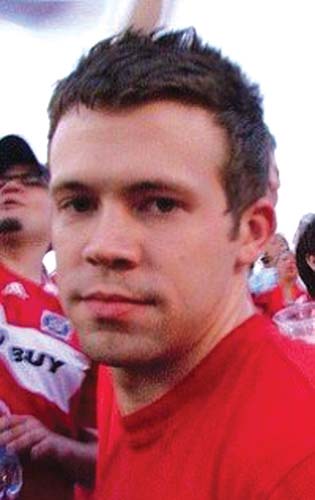A new support group for LGBTQ people living with disabilities has recently begun meeting at Access Living, and its founders are eager to spread the word about it in the community.

Access Living is a non-residential center for independent living, aimed at providing resources for people with disabilities. In March 2007, it moved into a brand-new building at 115 W. Chicago, which has earned praise for being green and for providing universal access. The organization is not queer-defined, but, as Susan Nussbaum put it, “Its main mission has always been the rights of people with disabilities. A part of that includes peer interaction and support and strength in identity through meeting, working and socializing with people with like oppression.”
According to Nussbaum, Access Living had long been aware that there was a significant LGBTQ community within the disability community. The organization is allied with Broadway Youth Center (part of Howard Brown Center) , which caters to youth living in stressful circumstances like poverty and homelessness. Joe Hollendoner, director of the program, and other staff at the Center saw many queer youth living with disabilities, and realized that they felt “ill-equipped to address it,” Nussbaum said.
Over the spring and summer of 2008, Nussbaum, Hollendoner and others began informal conversations about how to go about creating a support group that would address the particular needs of queers with disabilities. Among the discussants was Tim Jones-Yelvington, who had been in contact with Nussbaum since his days as a student at DePaul University.
In the fall of 2005, Spectrum, DePaul’s LGBTQA student organization, asked Nussbaum to do a workshop on the intersections of sexuality and disability; she and Jones-Yelvington, then a member of the group, met there and began having conversations about what they both saw as a necessary support group. They began talking about the possible needs of the group, membership limits and publicity flyers.
Jones-Yelvington, who volunteers with Access Living, is not himself disabled, but he had been thinking about the complications facing queer people with disabilities; much of his reflection was informed by both his studies and life as an activist: “My own commitment as a queer activist has been around intersections of sexuality with other systems of oppression, queer politics and issues of race and class and gender and gender identity. I realized disability issues were frequently silent in that conversation.” Jones-Yelvington also saw the shared histories between queers and people with disabilities, in terms of past biomedical interventions onto their bodies.
Indeed, while people might be familiar with Nazi attempts to eliminate people with disabilities, they may be less familiar with the more quotidian ways in which people with disabilities have been negatively treated. LGBTQs, who still see attempts at “correction” by, for instance, parents who send their children to “ex-gay camps,” can understand, at least partially, what it means to live in a society that views them as inherently wrong. Governmental recognition of the needs of people with disabilities has been slow. The Rehabilitation Act, which protected the civil rights of people of disabilities, was passed in 1973. But it was not until the Americans with Disabilities Act, which passed relatively recently, in 1990, that people with disabilities gained a law that ensures their equal access to employment opportunities and public accommodations.
Jones-Yelvington is, at least for now, the facilitator of the queer disability support group, and is keenly aware of this complicated history and “mindful that the experiences of able-bodied people and disabled people are not part of the same oppression.” The group had its first meeting in January. What did Yelvington-Jones anticipate and how did the reality mesh with his perceptions of what it might be? What are the issues faced by queers with disabilities in particular?
He said that the conversations raised “issues of vulnerability and violence for folks who don’t have access to full independent living and might face violence from caregivers and family.” While there is no hard data available yet, Yelvington-Jones suspected that these issues are compounded for queer people. Additional issues might involve cultural and social questions. One participant wondered about how to come out to a religious family. Others spoke about what Yelvington-Jones described as “really awful encounters with paramedical stuff … there were people who had a lot of accidents and series of hospitalizations where the treatment was not what it ought to be.”
Will the group take on a social-activism function? Will it be primarily a support group where people can freely discuss their issues? Will it seek to provide resources? Yelvington-Jones said that the structure of the group is entirely up to its members: “I went in with the sense that I’m a facilitator, and I’ll do what I can to help people connect with each other.” According to him, the group will also eventually decide how it wants its leadership structure to look.
For now, Access Living is focused on continuing to get the word out and building the membership in the support group. The only requirements are that people be in the age range of 18-30, and that they be both LGBTQ and disabled. The group meets the last Monday of every month, 6-7:30 p.m., at 115 W. Chicago. Contact Susan Nussbaum at snussbaum@accessliving.org , 312-640-2170 (TTY) or 312-640-2121.